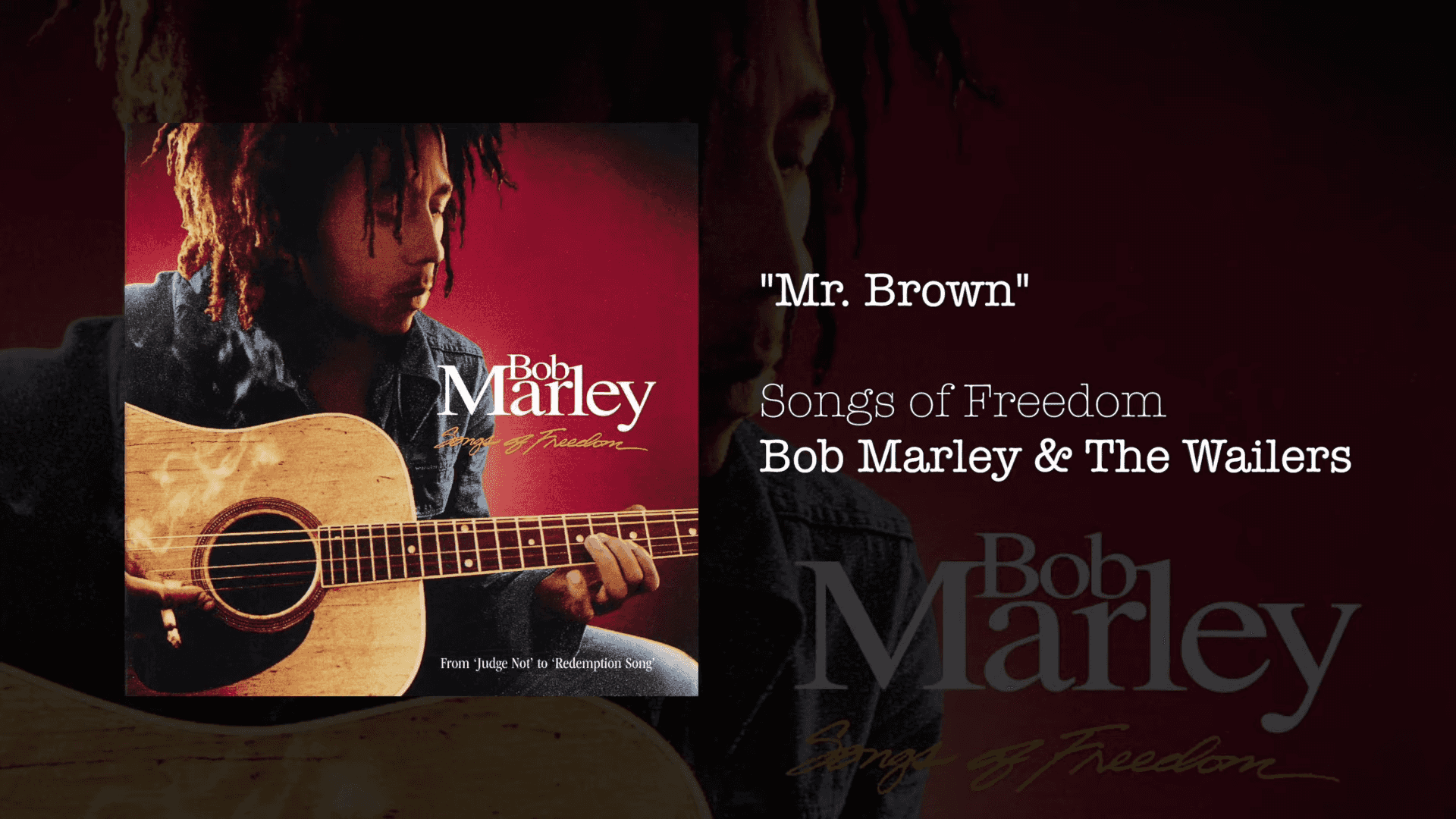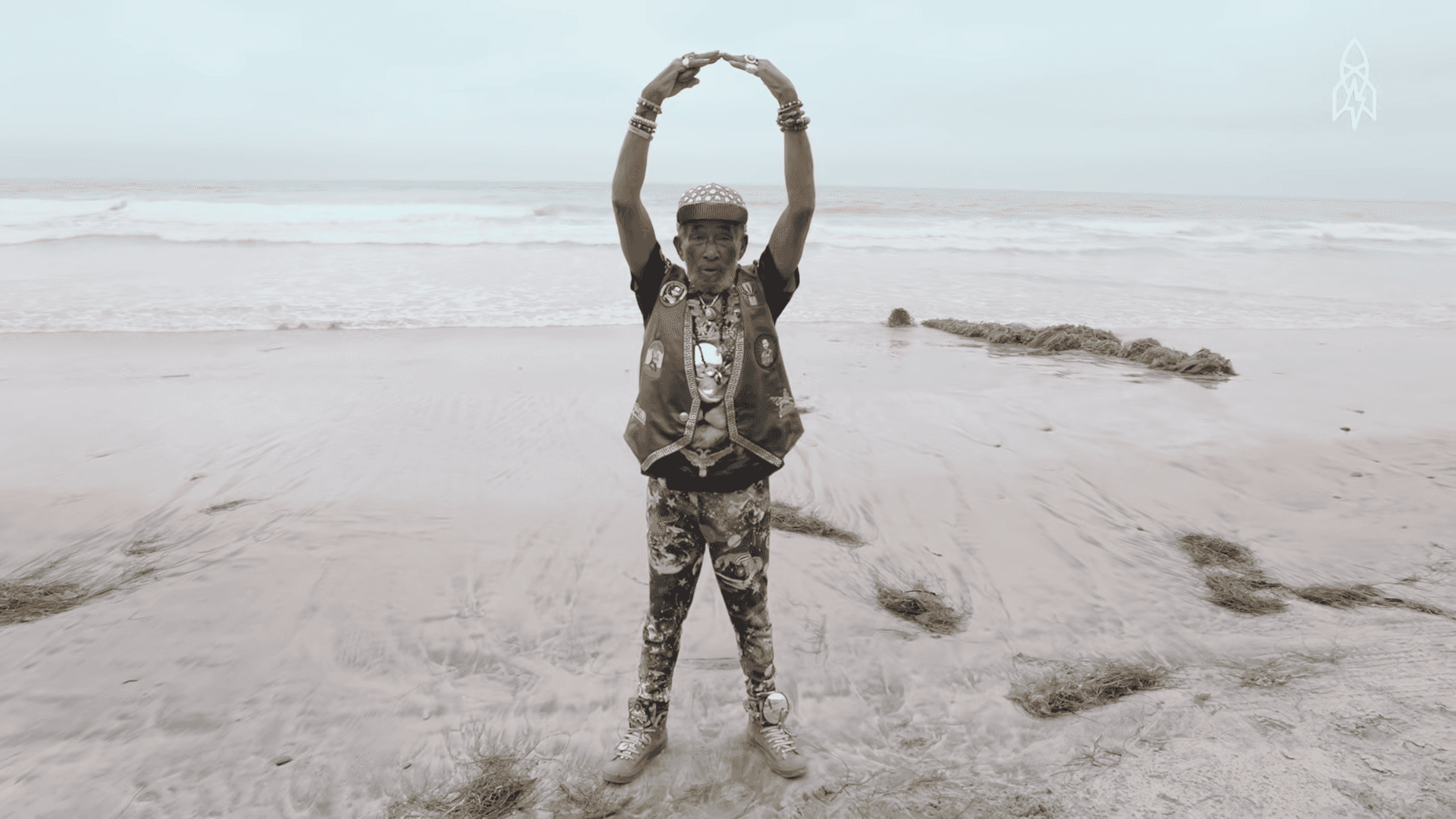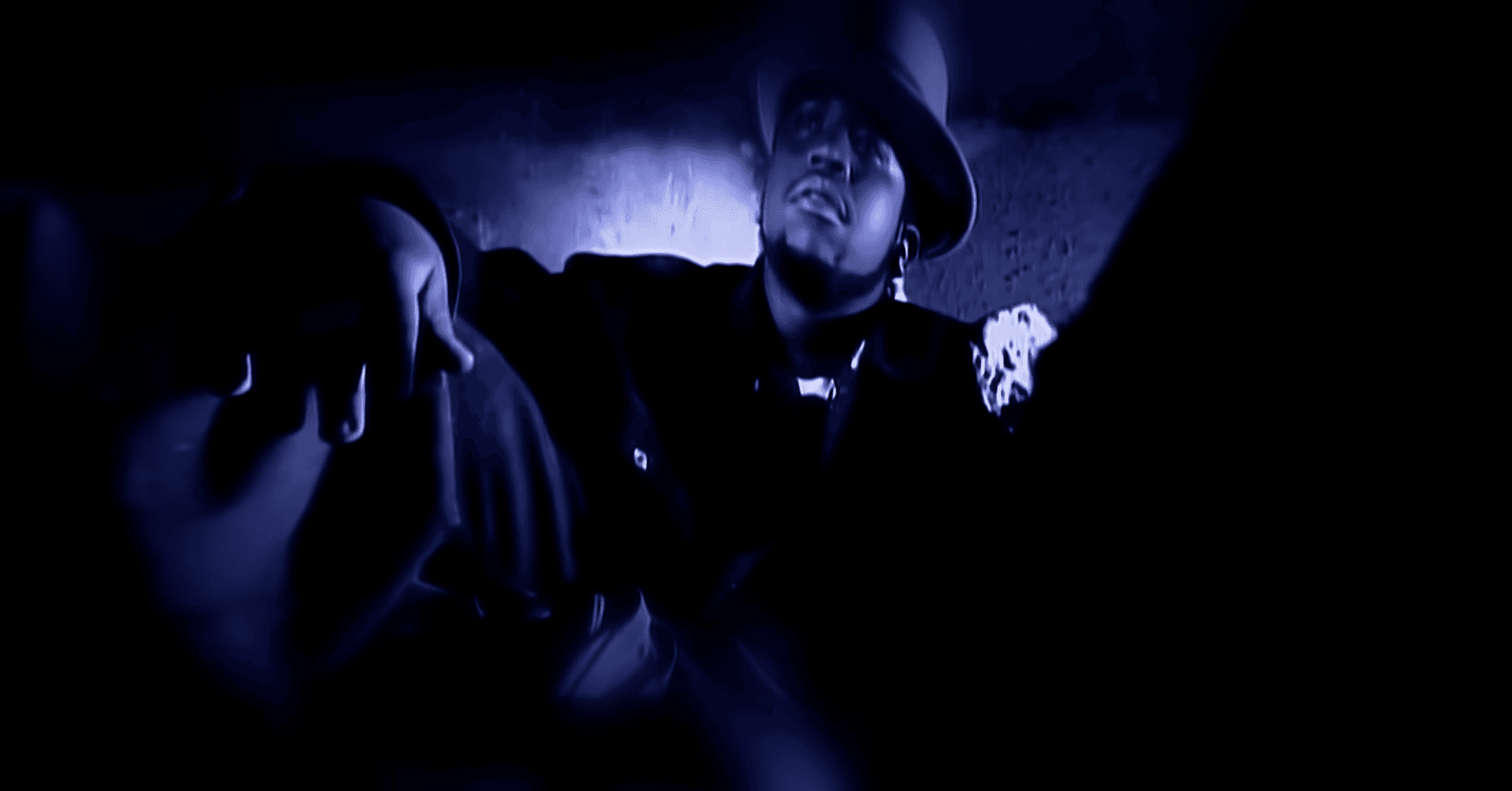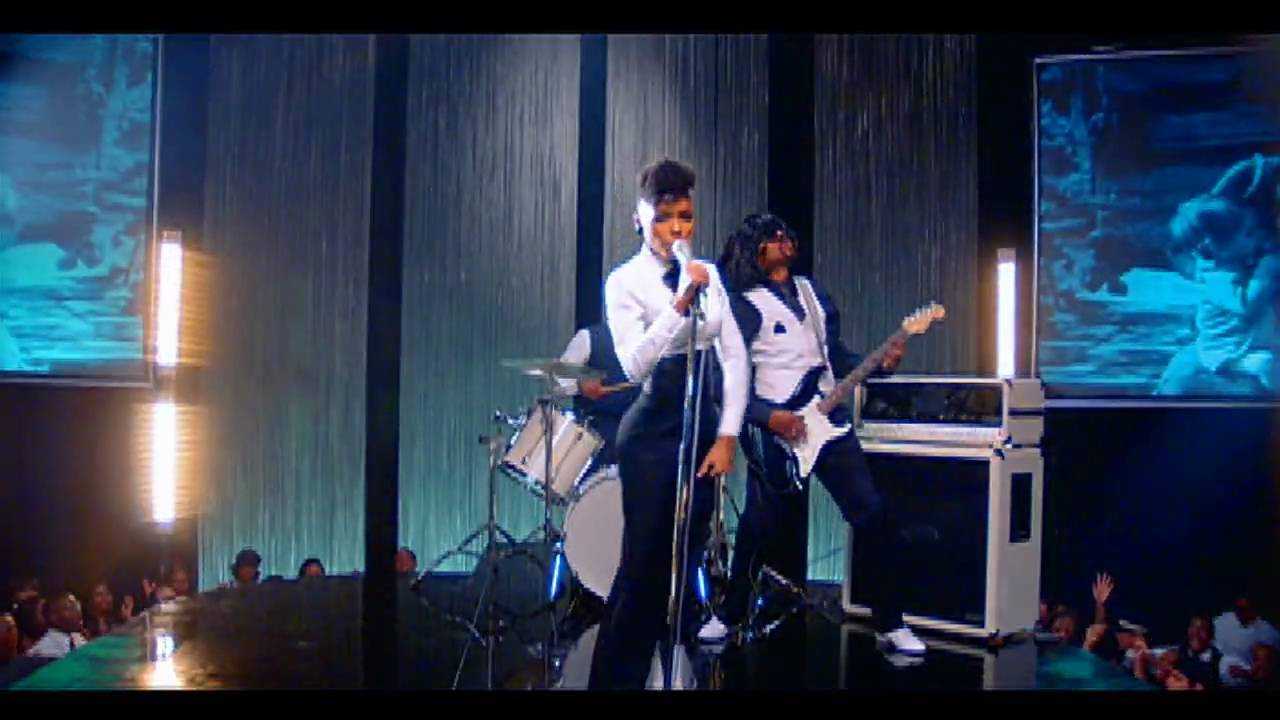Sonic Architects
Innovation is crucial to the creation of music because it pushes the art form forward while simultaneously broadening the dimensions of the art and culture that fosters and supports the music. These sonic architects embrace the principles of Afrofuturism, innovating popular music with the creation of new sounds and new genres, and utilizing technology to design seemingly infinite musical landscapes. While innovation remains a hallmark of Black music making, a cadre of musicians have utilized Afrofuturism’s sonic platform to tell their musical stories and outline their visions for new musical futures.
Lee “Scratch” Perry
Lee “Scratch” Perry (bottom left, sitting) pictured with members of The Upsetters, his studio band at Black Ark Studios, Kingston Jamaica, 1978.
Born Rainford Hugh Perry, Lee “Scratch” Perry (1936–2021) was a Jamaican record producer, musician, artist, and self-proclaimed “upsetter” of the musical world. A seminal figure in the advent of reggae and Jamaican popular music in the late 1960s and early 1970s. Perry produced early hits by Bob Marley and the Wailers, the Heptones, Junior Murvin, and others. From his perch at Black Ark Studios, Perry created the sounds and helped develop the rhythmic sensibilities that characterize reggae music. Producing music about cosmology, science, mysticism, and the natural world, Perry’s reinventive approach to recording further broadened the scope of musical Afrofuturism.
Featured Video
“Mr. Brown” by Bob Marley and the Wailers
This Bob Marley and the Wailers song features Lee ”Scratch” Perry’s innovative production style.

Mi’s a future-teller.
Lee “Scratch" Perry
Featured Video
Lee "Scratch" Perry Pioneers New Sounds in the Digital Age
At his home studio known as the Black Ark, Perry reconstructed the reggae music he helped to create into the electronic subgenre known as dub music. Dub uses studio technology to create its heavily echoed and reverberated sound. An inventive sonic engineer, Perry’s innovations include creating self-contained patches of sound that can be used in different parts of a song—a hallmark of modern digital recording. He also turned his studio into living art, adorning his equipment with assorted natural and man-made materials. Black Ark burned down in the 1980s, but Perry continued his sonic innovations – moving from tape decks to laptops – well into his 80s.
Outkast
Outkast, 2002
Outkast were the pioneers of the Southern hip-hop sound that emerged during the 1990s. Consisting of André “André 3000” Benjamin (b. 1975) and Antwan “Big Boi” Patton (b. 1975), Outkast’s music and consistently evolving image reflect the dreams, lives, and changing times of Black Southern culture in America. Forging new artistic ground along with other Southern-based musical artists such as Goodie Mob, Big K.R.I.T., and Erykah Badu, Outkast’s style and sound exemplify Afrofuturism’s ability to communicate ideas about Black futures across genre and geographic lines.
Extraterrestrials from ATL
Outkast performing at the Theater at Madison Square Garden in March 2001
Hailing from East Point, Georgia, Outkast began their career outside of the traditional hip-hop scenes of New York and Los Angeles. Designating themselves as proud outsiders, Outkast’s music explores themes of alienation, ostracism, isolation, and racism, as well as the past, present, and future of Black life in the American South.
Featured Video
"ATLiens" by Outkast
ATLiens is Outkast’s second studio album. The “ATL” is an abbreviation for Atlanta, Georgia, while ‘ATLiens’ describes their view of themselves as aliens, or outsiders, within the music industry, the hip-hop genre, and American society more broadly.
Janelle Monáe
Janelle Monáe
Evolving from the futuristic musical and aesthetic template established by Sun Ra, Nona Hendryx, and P-Funk, musician, songwriter, producer, actor, and activist Janelle Monáe (b. 1985) represents the 21st-century vision of musical Afrofuturism. Crafting songs and images about dystopian futures and android protagonists, Monáe employs the “hybrid-human” popularized in sci-fi literature. In so doing, she maps out narratives to serve as larger, symbolic platforms for the advocacy of African American, Black, Indigenous, People of Color (BIPOC), and LGBTQ+ issues.

I speak about androids because I think the android represents the new ‘other.’ ... You can compare it to being a lesbian or being a gay man or being a Black woman.
Janelle Monáe
Featured Video
“Q.U.E.E.N.” by Janelle Monáe featuring Erykah Badu
Musical video for the song “Q.U.E.E.N.” by Janelle Monáe featuring Erykah Badu
The ArchAndroid
ArchAndriod Costume
Multifaceted artist Janelle Monáe often uses the android persona of Cindi Mayweather in her music. An androgynous, flawless automaton, the persona grants Monáe the ability to place Black women at the center of fantastical and sci-fi-inspired worlds. Monáe explores Afrofuturism’s expansive ideology and inclusivity in order to seek broader notions of feminism and self-expression. “We come in peace,” she stated at the 2018 Grammy Awards ceremony, “but we mean business.”




